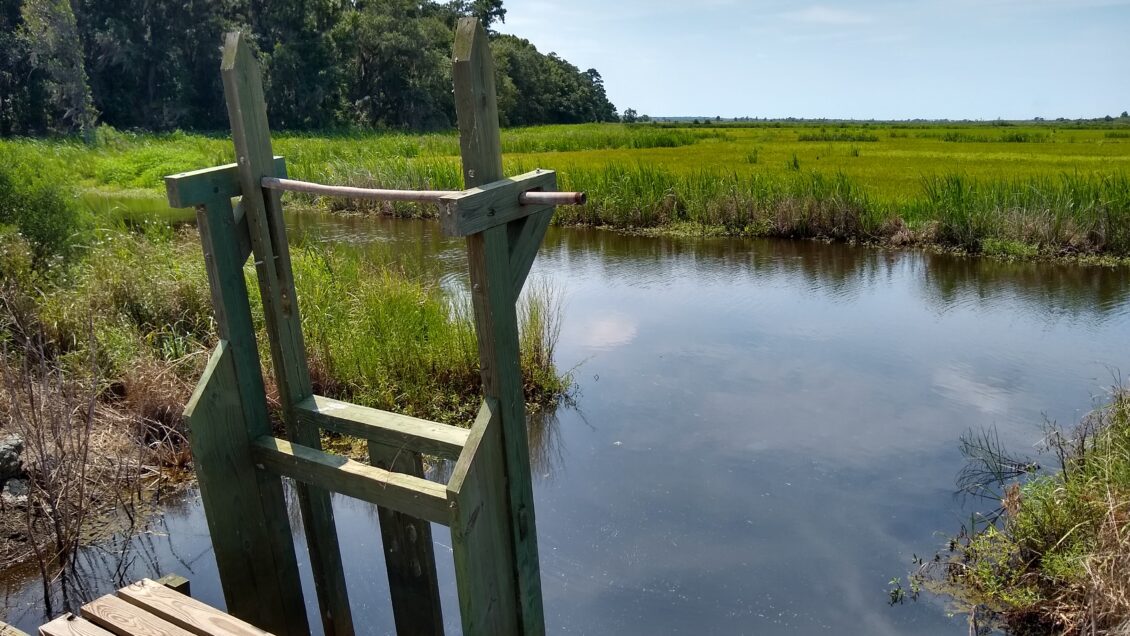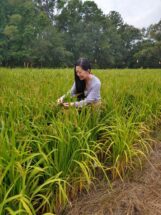
A Clemson University researcher is part of a multi-state, multi-disciplinary study to improve rice farming sustainability and profitability through research innovations that advance climate-resilient crops.
Raghupathy Karthikeyan, Newman Endowed Chair Professor of Natural Resources Engineering and a professor in Clemson’s Agricultural Sciences Department, is collaborating with researchers from other land-grant institutions and the United States Department of Agriculture to learn how the development and adoption of climate-smart crop production technologies and practices can enhance rice production.
This $10 million project is funded by the United States Department of Agriculture National Institute of Food and Agriculture (USDA-NIFA) through its Agriculture and Food Research Initiative’s Sustainable Agricultural Systems program. The project addresses the three pillars of the land-grant mission – research, education and the Cooperative Extension Service.

“During this project, we will work to identify climate resilient rice, particularly salt-tolerant rice cultivars and appropriate management practices for rice growers,” Karthikeyan said. “The outcome of this project will allow for development of a skilled workforce that will continue research and development and help distribute information related to using climate resilient technologies.”
Rice once was a dominant agricultural staple in South Carolina before saltwater intrusion forced farmers to grow other crops.
During this project, the researchers will: assess socio-economic and environmental impacts of current farming practices and identify barriers to adopting climate-smart technologies; design climate-smart rice cultivars; develop climate-smart management practices; and develop and implement effective Extension programming. Knowledge gained will be used to identify rice varieties that can adapt to a changing climate.
For his part in the study, Karthikeyan will calibrate and validate the rice crop model, CERES-Rice, a model from Decision Support System for Agrotechnology Transfer – DSSAT suite, using different environmental and management conditions. This model is used for crop management design. Karthikeyan will use this model to forecast rice yields across different management practices under variable climate scenarios.
“Crop simulation models simulate growth, development and yield as a function of interactions between soil, plant and the atmosphere,” Karthikeyan said. “Optimum management practices to increase rice production can be identified using CERES-Rice simulations.”
Field trials will be conducted on salt-tolerant rice lines at the Clemson Coastal Research and Education Center (REC) in Charleston, South Carolina.
Clemson researchers will apply the CERES-Rice model to assess responses of different rice cultivars using projected climate change. Once calibrated, the model will be used to make on-farm management decisions in current and future climatic conditions. This farm modeling system uses data from across the agricultural production chain and includes social and regional considerations to maximize economic, environmental and societal benefits.

Karthikeyan also will develop and teach a special topics class and coordinate a mini-symposium on sustainable and climate-resilient rice production at Clemson University.
In addition to Clemson, this Louisiana State University-led project also includes researchers from the University of Arkansas, Texas A&M University AgriLife Research, Mississippi State University and the USDA-Dale Bumpers National Rice Research Center. These researchers have expertise in plant breeding, genetics, plant physiology, plant pathology, entomology, agronomy, soil science, precision agriculture, microbiology, mechanical engineering, modeling, artificial intelligence, sociology, economics and Extension education.
Karthikeyan said this expertise will help the researchers share their knowledge with rice growers today, as well as with rice growers of the future.
“We will use Extension and education activities to equip the current and next generation of rice farmers, consultants and researchers with knowledge and skills needed to embrace new climate-smart agriculture technologies and production practices,” Karthikeyan said. “Growers will learn how to make the correct decisions at the correct times to help reduce yield losses, land use, labor and consumer energy.”
This grant is part of a $70 million dollar investment from USDA to establish robust, resilient and climate-smart food and agricultural systems.
To help revive the South Carolina rice industry, another Clemson-led project is iCORP – Increasing Coastal Organic Rice Production in South Carolina Using Salt Tolerant Cultivars. During this project, researchers will detail cultivation practices and economics of growing rice in salt-affected coastal areas to help growers to make informed crop-related decisions.
-END-
Get in touch and we will connect you with the author or another expert.
Or email us at news@clemson.edu
